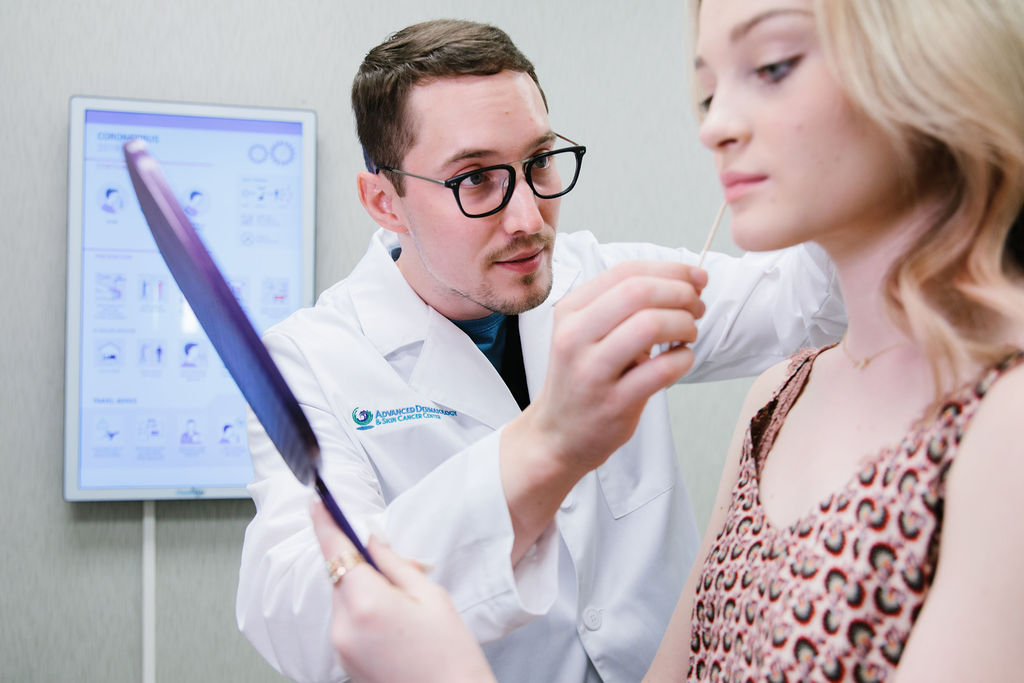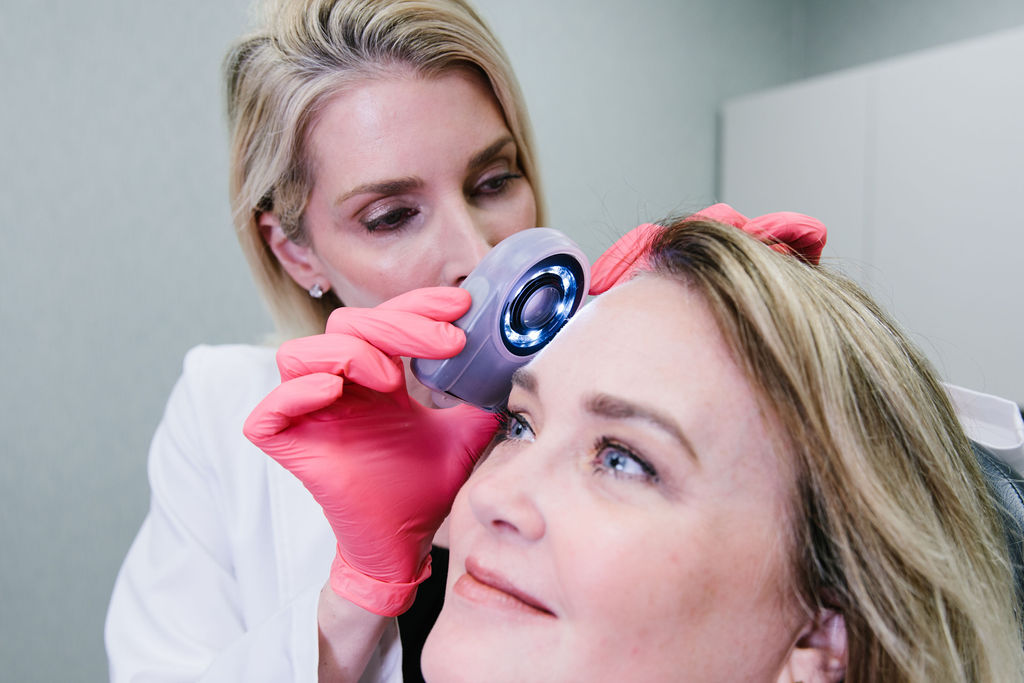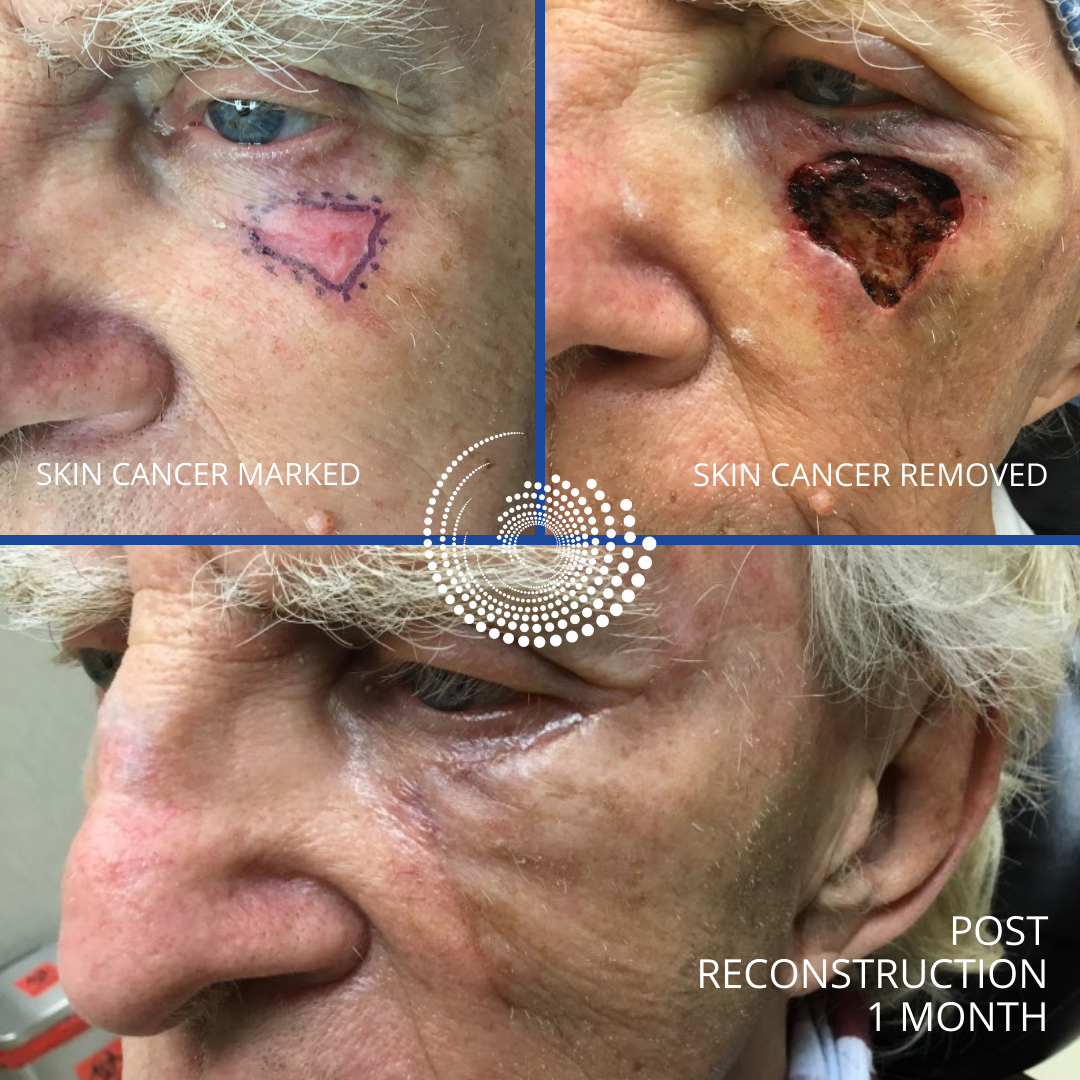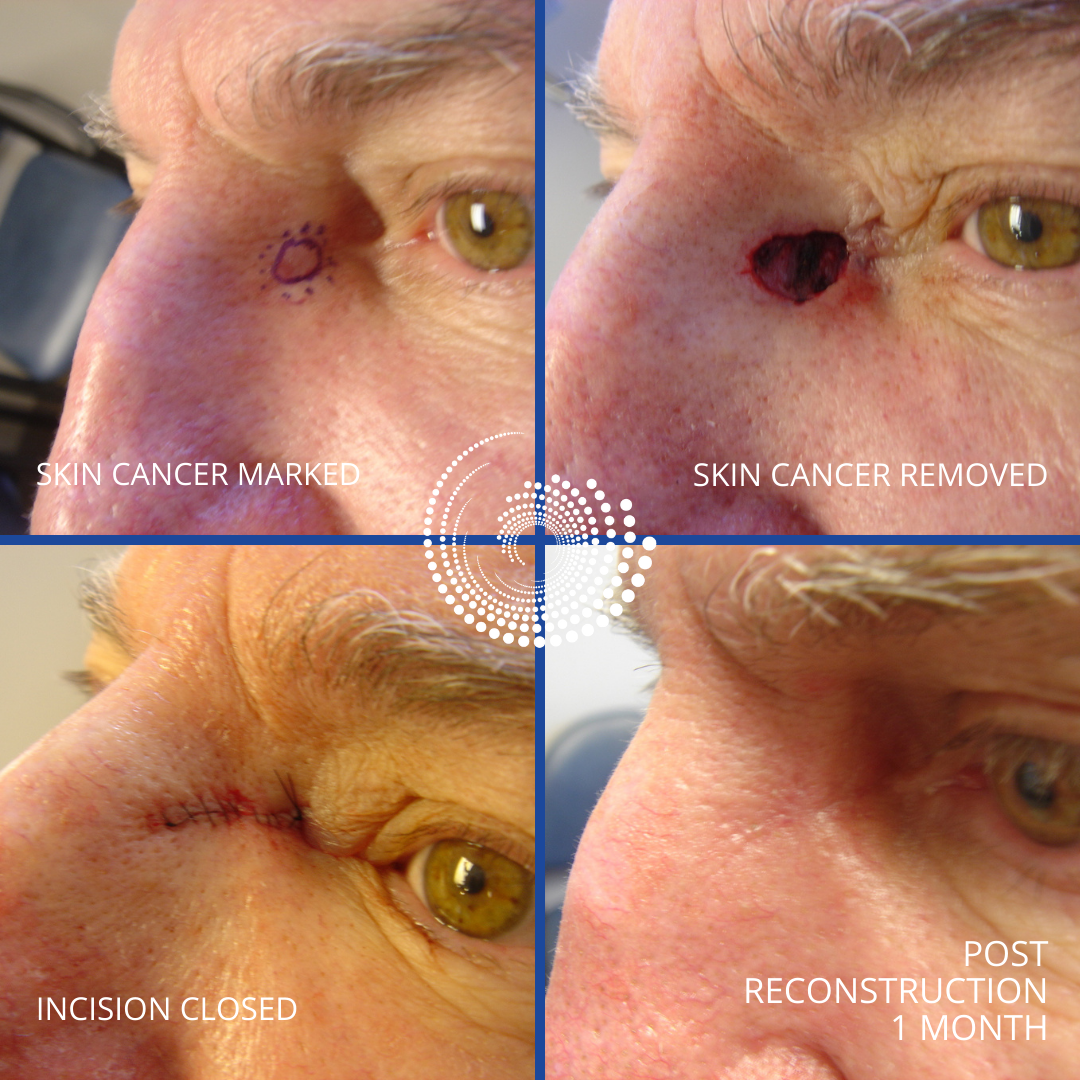The Gold Standard for
Skin Cancer Treatment
Healthy Skin for Your Family
Welcome to Advanced Dermatology & Skin Cancer Center, PLLC. A diagnosis of skin cancer can be a stressful, scary experience. Know that when you come to Advanced Dermatology & Skin Cancer Center you are in expert hands.
Mohs surgery, the gold standard for skin cancer removal, is considered to be the most effective treatment for a variety of skin cancers. Our team includes two Fellowship-trained Mohs Surgeons, Dr. Henry and Dr. Martin. Mohs Surgery is the gold standard for skin cancer treatment, taking the least amount of healthy tissue with up to a 99% cure rate.
Dr. Lance Henry is the leading expert in the treatment of skin cancer in Northwest Arkansas. He has treated over 18,000 skin cancers using the Mohs technique, making him the most experienced Mohs Surgeon (skin cancer surgeon) in the region. Joining our practice in Fall 2024, Dr. Martin offers care and surgery appointments primarily in Rogers. Dr. Martin studied under the well-known Dr. Christopher Harmon, author of “Mohs Micrographic Surgery: From Layers to Reconstruction”, one of the primary textbooks used by Mohs fellows during training. Further, Dr. Harmon is known for advancing novel techniques to reduce the appearance of scars from skin cancer removal.
Fellowship-trained is the highest level of training that surgeons who specialize in this procedure can attain. There are only 1,500 worldwide.
Expert Skincare
Our Fayetteville and now Rogers locations are the only ones of their kind in Arkansas with a comprehensive dermatology clinic, full-service medical spa, and skin cancer center complete with a pathology laboratory, Mohs surgery laboratory, and a full-accredited Ambulatory Surgery Center, all under one roof. This unique setting allows patients to have Mohs surgery procedures (skin cancer surgery) and complex reconstructive post-skin cancer surgery at the same facility. Under one roof is easier for you! Meaning everything can be accomplished under one roof, many times in one visit.


FAQ
What can a Dermatologist help with?
Our board-certified Dermatologists can help with:
- Acne
- Actinic Keratosis
- Basal Cell Carcinoma
- Eczema
- Fungal, bacterial, or viral skin infections
- Hives and skin allergies
- Keloid scars
- Malignant Melanoma
- Melasma
- Poison ivy
- Psoriasis
- Rash
- Rosacea
- Severe acne
- Shingles
- Skin Cancer
- Squamous Cell Carcinoma
- Warts
- Other Skin Problems
What can I expect from Mohs Surgery?
The area is numbed with a local anesthetic. Next the Mohs Surgeon will remove the visible tumor with a small margin of healthy tissue. A pressure bandage will be placed on the wound, and you will be escorted to a private waiting area, where you can watch TV, read, or any quiet activity.
The Mohs Surgeon will then prepare the excised tissue for examination to determine whether any of the tumor remains. Remaining cancerous tissue is marked, and the Mohs procedure is repeated until there is no cancerous tissue left on the affected area.
When the Mohs Surgeon is confident that the tumor has been completely removed, you will be prepped for reconstruction. In addition to advanced training in the removal of skin cancer, Fellowship-trained Mohs Surgeons also specialize in reconstructive surgery for repairing the wound. This makes for cost-efficient and effective treatment for skin cancer removals as this reconstruction is almost always done the same day.
Why choose a Fellowship-trained Mohs surgeon?
To start, Mohs surgery fellowship training programs must pass a rigorous application and review process before being allowed to train a fellow. Once the training program is approved, the program must continue to adhere to the standards set by the Mohs College. All ACMS-approved training programs are periodically re-evaluated on a 1 to 5-year basis to ensure that their academic and clinical requirements are being followed and fulfilled. We are proud to say that we have on our staff two Fellowship-trained Mohs surgeons, Dr. Henry and Dr. Martin. There are only 1,500 Fellowship-trained Mohs surgeons worldwide with this elite type of training.
While any board-certified dermatologist may perform Mohs surgery to treat skin cancer, only members of the American College of Mohs Surgery (ACMS) have been accepted and undergone this rigorous Fellowship training. Most others have simply completed a separate course or seminar on Mohs Surgery. Cure rate, when performed by a Fellowship-trained Mohs Surgeon is up to 99%, the highest cure rate achievable.
What is Mohs Surgery?
Mohs surgery is the most effective treatment for most types of skin cancer when performed by a Fellowship-trained Mohs Surgeon.
Mohs Micrographic Surgery is an effective and precise method for treating melanoma, basal cell, and squamous cell skin cancers. Because the Mohs Micrographic Surgery process features a systematic microscopic search that traces skin cancer down to its roots, it offers the highest chance for complete removal of the tumor while sparing the normal tissue surrounding it.
Clinical studies conducted at various national and international medical institutions demonstrate that Mohs surgery provides five-year cure rates that exceed 99% for new skin cancers and 95% for recurrent skin cancers.
Mohs surgery is performed by doctors who are specially trained to fulfill three roles:
- The surgeon who removes the cancerous skin tissue
- The pathologist who analyzes the lab specimens
- The surgeon who closes or reconstructs the wound – generally the same day the skin cancer was removed.
Does my insurance cover treatment?
At Advanced Dermatology & Skin Cancer Center, we are happy to partner with our patients to determine coverage and maximize available medical insurance coverage whenever possible. While most insurance policies cover the costs of Mohs surgery and the reconstruction of the resultant surgical area, feel free to call us and we can help answer any questions you may have.
Do I need a referral?
Almost all HMO medical insurance plans require documented referrals before they will offer coverage for visiting a specialty practice like a dermatologist’s office. Some PPO medical insurance plans also require referrals, especially for more advanced treatments. The best way to determine whether or not you need a referral is to contact your insurer.
Check Availability Now
Reviews
































